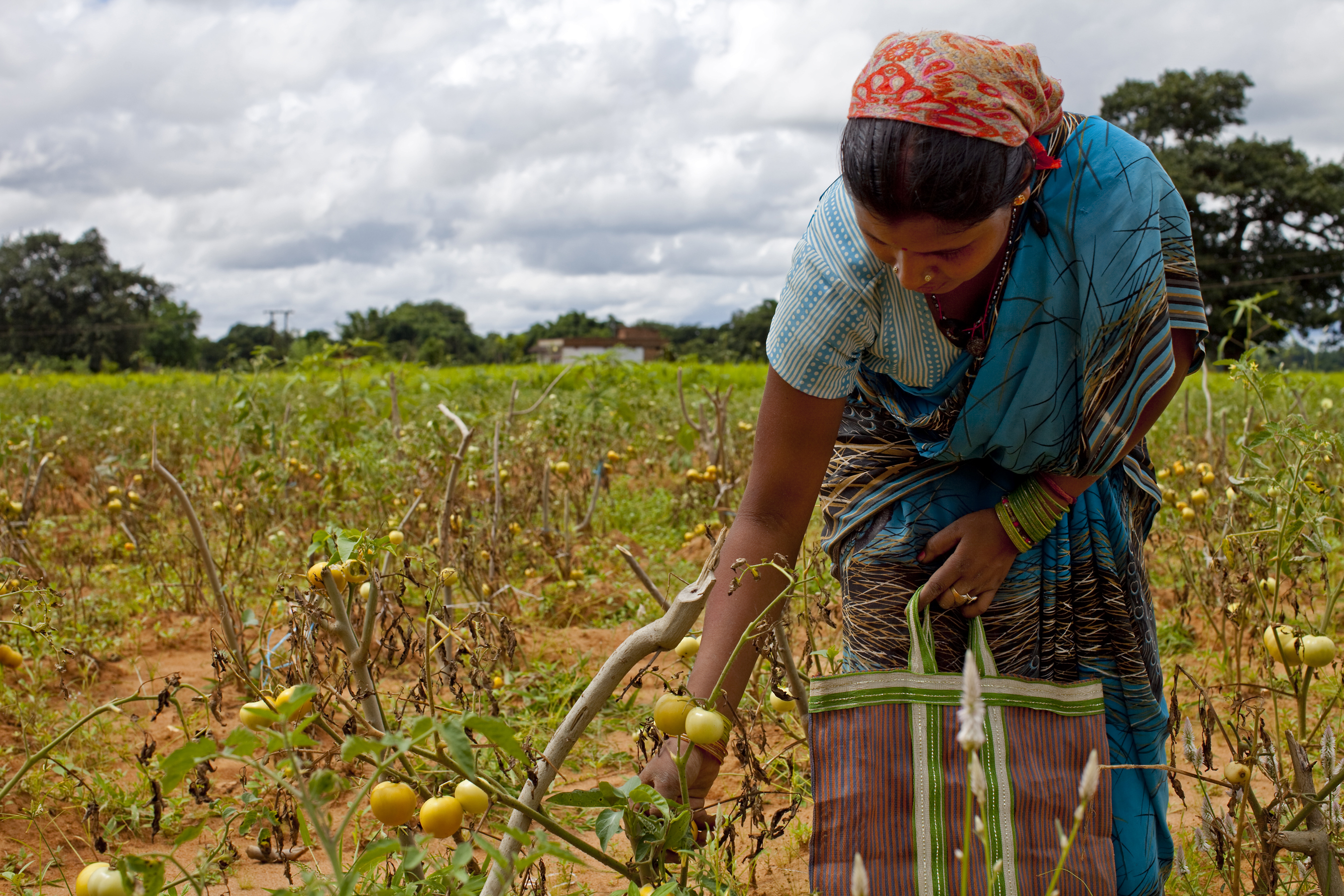
EDITOR’S NOTE: Oct. 9 is World Hunger Sunday for Southern Baptist churches across North America. Since 1974, Southern Baptists have fought the problem of hunger through their World Hunger Fund. One hundred percent of every dollar given to the fund is used to provide food to undernourished people all over the world — 80 percent through the International Mission Board and 20 percent through the North American Mission Board. For more information on the Southern Baptist World Hunger Fund, including resources for promotion of World Hunger Sunday in your church, go to www.worldhungerfund.com.
INDIA (BP) — The young mother rushes out to Saachi Sarkar* as she walks up the jungle path to the village. The mother is all smiles as the two embrace.
“It’s working,” the mother says, excitedly pulling the older woman to the vegetable garden. “See? We did everything just like you taught — and now there’s enough here to feed us and even some left over to sell.”
The pair walks the rows of flourishing tomatoes and beans, stopping to pluck off a dead leaf. It’s only been a few months since Sarkar taught the FAITH (Food Always In The Home) gardens workshop sponsored by the Southern Baptist World Hunger Fund, but it’s already taking root in this impoverished community in India. The goal of the program is to bring about transformation by teaching villagers to not only grow food for themselves but to also sell the excess in the market.
As Sarkar asks about organic fertilizer, she snuggles the young mother’s baby and notices a marked improvement in his health from her last visit. The sores on his body are gone; his hair is losing the orange-tint of malnutrition and he is energetic.
This in itself is a big sign that the nutrition lessons and growing their own healthy vegetables are taking hold. In India, UNICEF estimates more than 147 million children under age 5 suffer from malnourishment. Sarkar estimates every child in this village suffers, as well as the adults who gather around her.
“Are you eating your dark green, leafy vegetables?” Sarkar asks. In India, most mothers are anemic because they do not get enough iron.
A woman in the crowd answers, “Yes, we are doing exactly as you said.
“We even meet to pray now,” the woman continues, quickly glancing to the tree line not more than 400 feet away, where bands of terrorists live and roam. “Since we started doing that every day, there is much peace in our village.”
Sarkar nods her head in understanding. This area is known for terrorist activity. Even though she can’t see the men with guns and bombs, she knows they are watching. Not many outsiders venture this far into the jungle. The terrorist group allows her entry because she has something useful to teach — farming and nutrition.
“Hunger is a result of poverty and poverty is the main reason there are terrorists in this area. They join ‘the cause’ so their stomachs will be filled,” Sarkar explains. “With this program, we can change the fate of communities — physically, economically and spiritually.
“FAITH gardens are a great tool God has given us so we may enter unreached areas like this,” Sarkar says, explaining that as a result of sharing Christ’s love through caring for physical needs, more than 50 prayer cells have started.
Sarkar’s team estimates they will reach more than 29,000 adults and children through 14 FAITH garden workshops this year. The World Hunger Fund, channeled through Southern Baptist humanitarian workers, helps with the $443 cost of supplies and starter seeds for each training session.
For just 21 cents per person, hunger and malnutrition are tackled at a grass-roots level, with one Indian teaching another to grow their own nutritious food and sustainable crops. Sarkar’s goals are for malnutrition to be a thing of the past and for families to earn enough money from their vegetable gardens to send their children to school — putting an end to the poverty/terrorism cycle in this part of the jungle.
–30–
*Name changed. Susie Banks is a writer/editor living in Asia. For more stories about the World Hunger Fund at work overseas, go to www.asiastories.com. For information about promoting or donating to the Southern Baptist World Hunger Fund, visit www.worldhungerfund.com.













